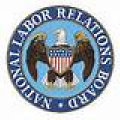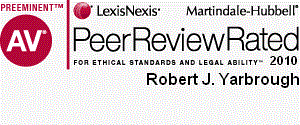Newsletter Issue 47 - January 2012
In this issue:
Who owns government-funded publications?
Patent fees for the 'micro entity'
Employee handbooks
But I Already Paid for That!
The United States Federal Government does a lot with tax dollars. One of those things is that it funds research in many areas that lead to published papers in basic science, medicine, engineering, and many more fields. Another is that it runs the Federal Court system, which publishes orders, rules, opinions, and the like. What do all of these publications have in common? It's that even though your tax dollars paid to create them in the first place, you will almost certainly have to pay again if you want to read them. You may pay a journal publisher thousands of dollars per year for a subscription, or pay $20-$45 for a copy of a single article. You may pay 10¢ per page to PACER, the online court system operated by the government, but you'll pay.
Some argue that if tax dollars are used to create a document, then taxpayers should not have to pay to read it. Certainly, this was the argument of young Aaron Swartz, when he downloaded a significant slice of the PACER database and put it online for free. He also argued that the JSTOR database of articles was largely the result of publicly funded work, and should be freely available. JSTOR, a nonprofit organization, is a database of scholarly publications, including thousands journals that cost thousands of dollars each per year in subscription fees - and that publish taxpayer-funded research.
According to the famous "hacker ethic", information wants to be free. This ideal, often in conflict with the proprietary rights regimes of patent and copyright, sets in motion a conflict that, in the case of Mr. Swartz, led to his prosecution and the threat of crushing legal fees, heavy fines, and a potential prison sentence far longer than if he had killed someone while driving under the influence of alcohol. In the face of these penalties, Mr. Swartz, age 26, took his own life.
The hacktivist group "Anonymous" has expressed its collective disgust with this situation using its recognizable Guy Fawkes masked persona, by inserting a message onto the website of the Federal Sentencing Commission. Their message, hacked into the website stated, in part,
There must be reform of outdated and poorly-envisioned legislation, written to be so broadly applied as to make a felony crime out of violation of terms of service, creating in effect vast swathes of crimes, and allowing for selective punishment. There must be reform of mandatory minimum sentencing. There must be a return to proportionality of punishment with respect to actual harm caused, and consideration of motive and mens rea. The inalienable right to a presumption of innocence and the recourse to trial and possibility of exoneration must be returned to its sacred status, and not gambled away by pre-trial bargaining in the face of overwhelming sentences, unaffordable justice and disfavorable odds. Laws must be upheld unselectively, and not used as a weapon of government to make examples of those it deems threatening to its power.
This crie de coeur goes beyond making information free, and the delivery method, hacking a website, is, itself, criminal, but the message rings true to those who remember the social activism of the 1960s and who lived through the Pentagon Papers, Watergate and Iran Contra. Even some intellectual property attorneys (but not many) have come to recognize that our present laws punish what used to be considered artistic creativity, and thus impoverish our culture and our civil discourse.
Perhaps the young Congressional staffer who suggested that we rebalance the interests of publishers and the public they used to serve was on the right track after all - just before he was fired for suggesting that copyrights ought to be a bit shorter than a century!
PTO Patent Fees for the 'Micro Entity'
As an individual or small business inventor, do you feel really, really small? The good news: after March 16, 2013 you may qualify as a 'micro entity' and be entitled to patent fee discounts from the PTO of 75% off large entity rates. The bad news: large and small entity rates are going up at the PTO.
An application is subject to reduced 'micro entity' fees if all of the inventors or inventions owners can certify to the following:
1. The applicant or inventor is a 'small entity;' that is, the applicant generally has fewer than 500 employees.
2. The applicant or inventor is named as an inventor on no more than four prior utility patent applications, not counting provisional applications, applications in foreign countries, or applications assigned to a previous employer.
3. Neither the applicant nor a person to whom the applicant had a duty to assign the invention had a gross income of not more than three times the median household income for the year prior to the filing date and the applicant is not obligated to assign the invention to a person with an income greater than that amount. The PTO cites 2011 U.S. Census Bureau statistics for a median household income of $50,054.00. The maximum gross income of the 'micro entity' applicant therefore cannot exceed $150,162.00. The gross income ceiling effectively limits micro entity status to individual inventors.
A false micro entity certification is fraud on the patent office and will invalidate any resulting patent and likely lead to sanctions against any patent attorneys or agents involved. An honest mistake can be rectified upon submission of appropriate certifications and payment of the fees owed.
Colleges and universities automatically qualify as 'micro entities' without meeting the above criteria. An employee of a college or university also qualifies without meeting the above qualifications.
Qualifying as a 'micro entity' will be valuable. After March 16, 2013. The filing fees to file a new utility patent application with the PTO for a large entity will be $1,600.00. A 'small entity' (fewer than 500 employees) will pay $800.00. A 'micro entity' will pay $400.00. The PTO estimates that 31% of applications will be filed by 'micro entities.'
Check Those Employee Handbooks!

There have been a spate of reporting about the National Labor Relations Board's (NLRB) recent decisions about the use of social media by employees. You may think that an employer should have absolute control over its employees' right to talk about the employer or its customers on the Internet, but that is not the case. In fact, if an employee's online speech can be even broadly interpreted to be protected under Sections 7 and 8 of the National Labor Relations Act (NLRA), such speech is permissible. Sections 7 and 8 of the NLRA protect a worker's "right to self-organization, to form, join, or assist labor organizations, to bargain collectively through representatives of their own choosing, and to engage in other concerted activities for the purpose of collective bargaining or other mutual aid or protection...."
The New York Times recently reported the trend in NLRB decisions under the headline, "Even if It Enrages Your Boss, Social Net Speech is Protected." Similarly, the PBS network just aired a report on NLRB decisions entitled "Can Facebook Posts Get You Fired?" The message presented by these reports is clear: employers must give careful consideration before firing an employee for what he or she says on the Internet. We strongly recommend that employers review these reports and also consider the implications of the rulings for employee handbooks.
A recent decision this month involving DirectTV provides an object lesson. In that case, DirectTV's employee handbook contained several rules that the NLRB found objectionable because they imposed blanket prohibitions against employees from contacting the media and law enforcement about the employer or its employees. The "Confidentiality" section of the handbook broadly prohibited employees from contacting the media about the company, its business and customers or from talking with law enforcement without pre-authorization and to "never discuss details about your job, company business or work projects with anyone outside the company" and to "never give out information about customers or DirectTV employees." The rule provided detailed instructions about where employees should not discuss DirectTV business, including "public venues, such as seminars and conferences, or via online posting or information data sharing forums, such as mailing lists, websites, blogs, and chat rooms."
According to the NLRB, such prohibitions could reasonably be
understood by employees to restrict discussion of their wages and
other terms and conditions of employment. That the handbook's rules
suggested that the confidentiality prohibitions applied to
discussions about customers, company business and other items did
not save the rules from the Board's "condemnation." The Board held
that the confidentiality rule violated section 8 (a)(1) of the NLRA.
What's the lesson? Avoid the cost of litigation, review your
employee handbooks now.

